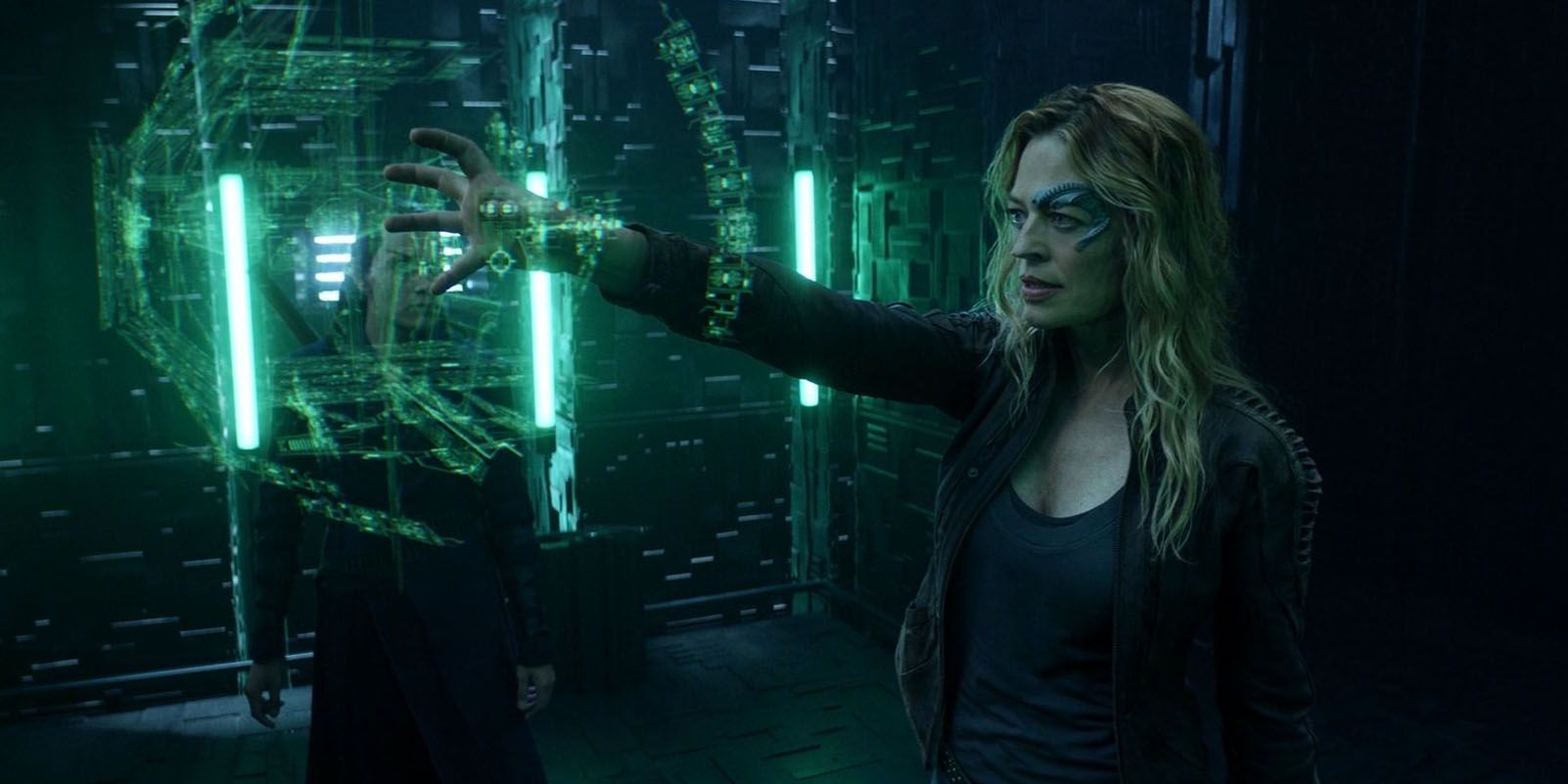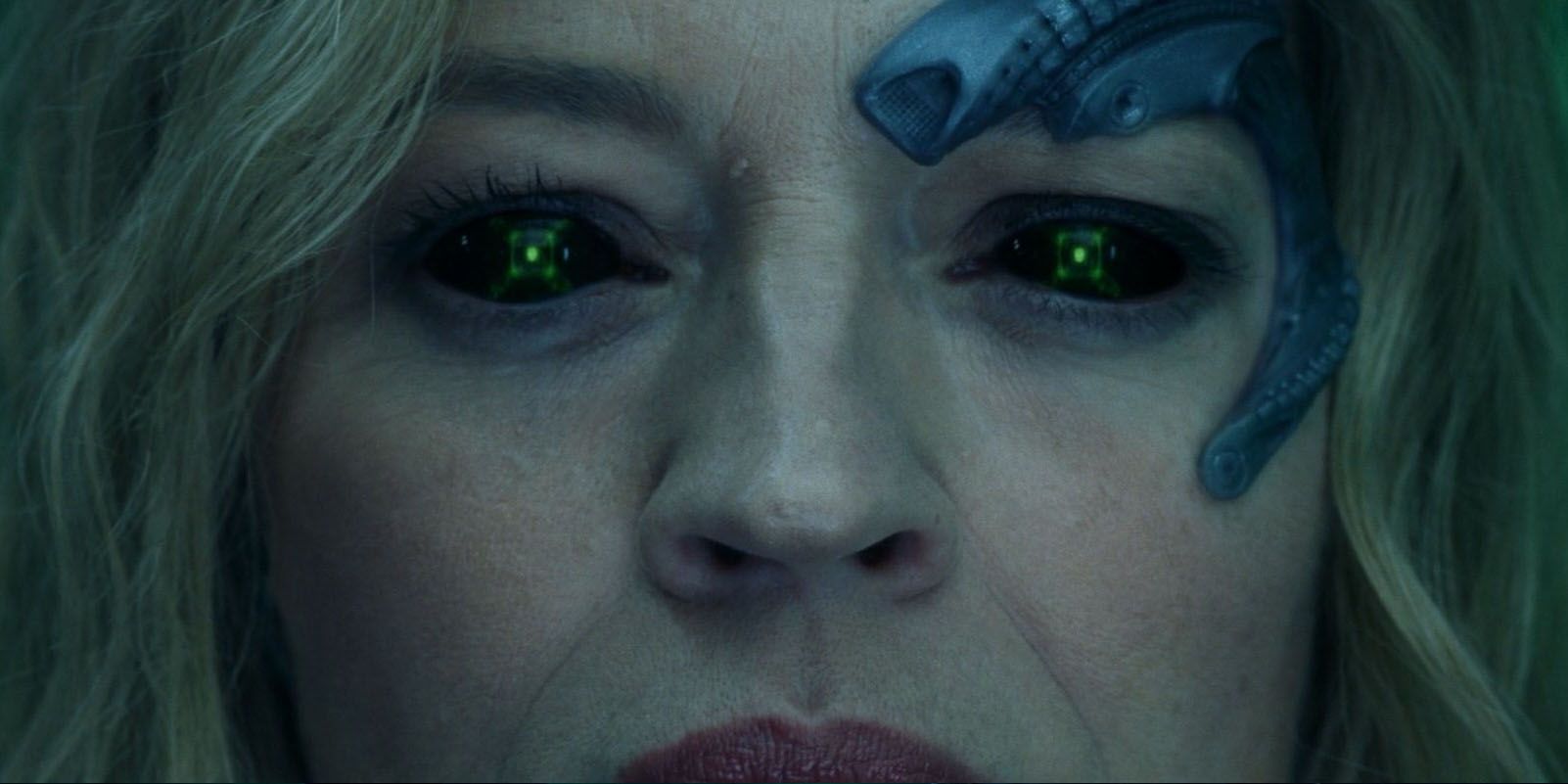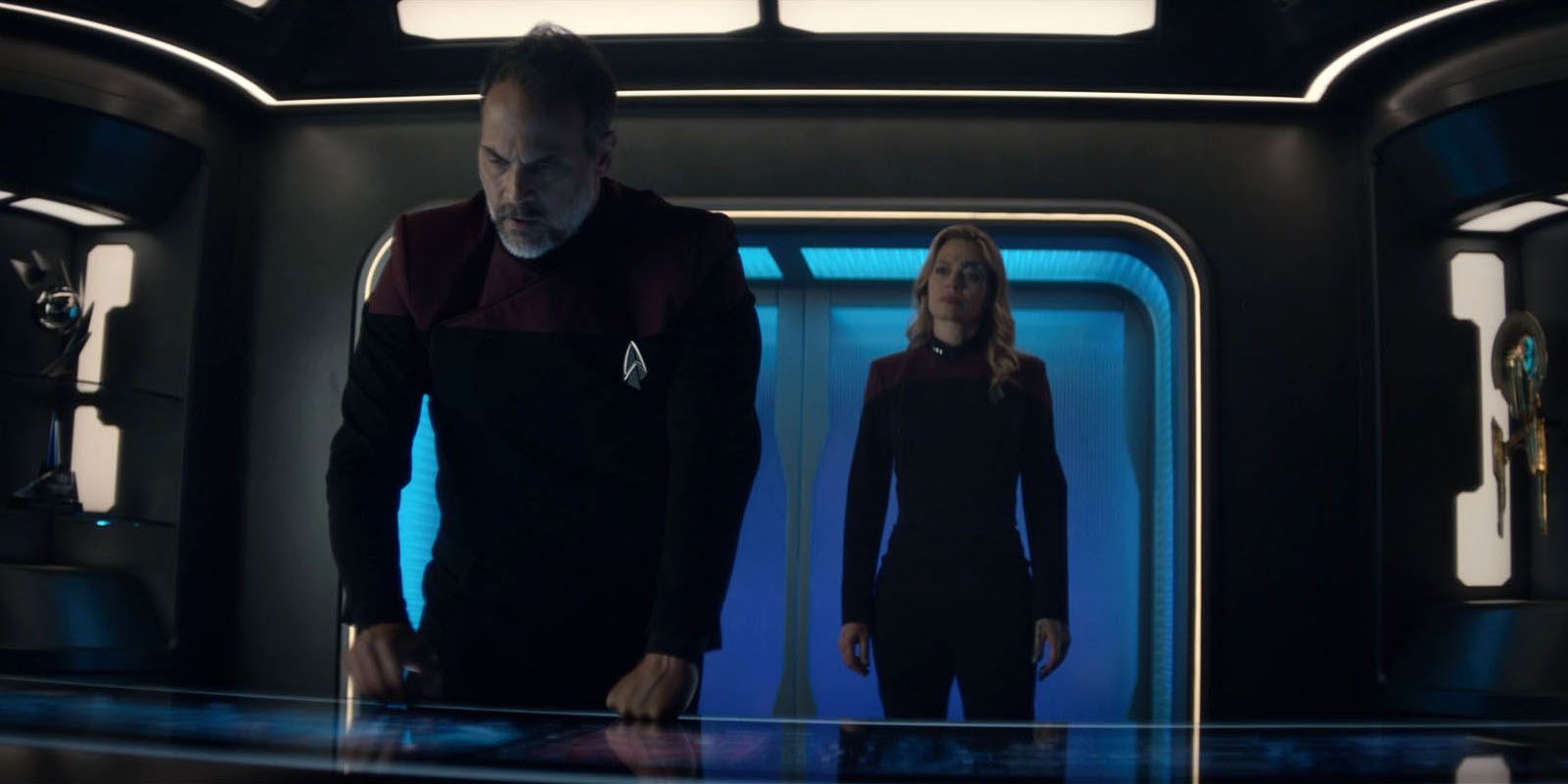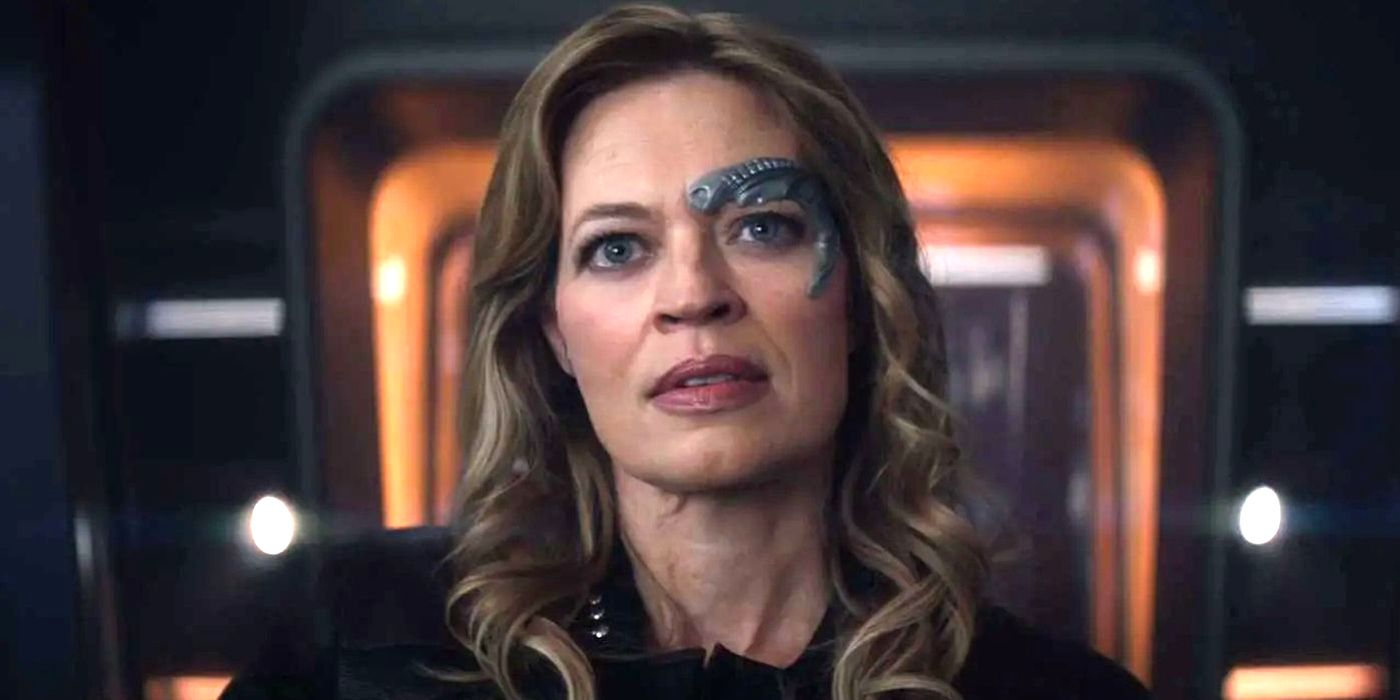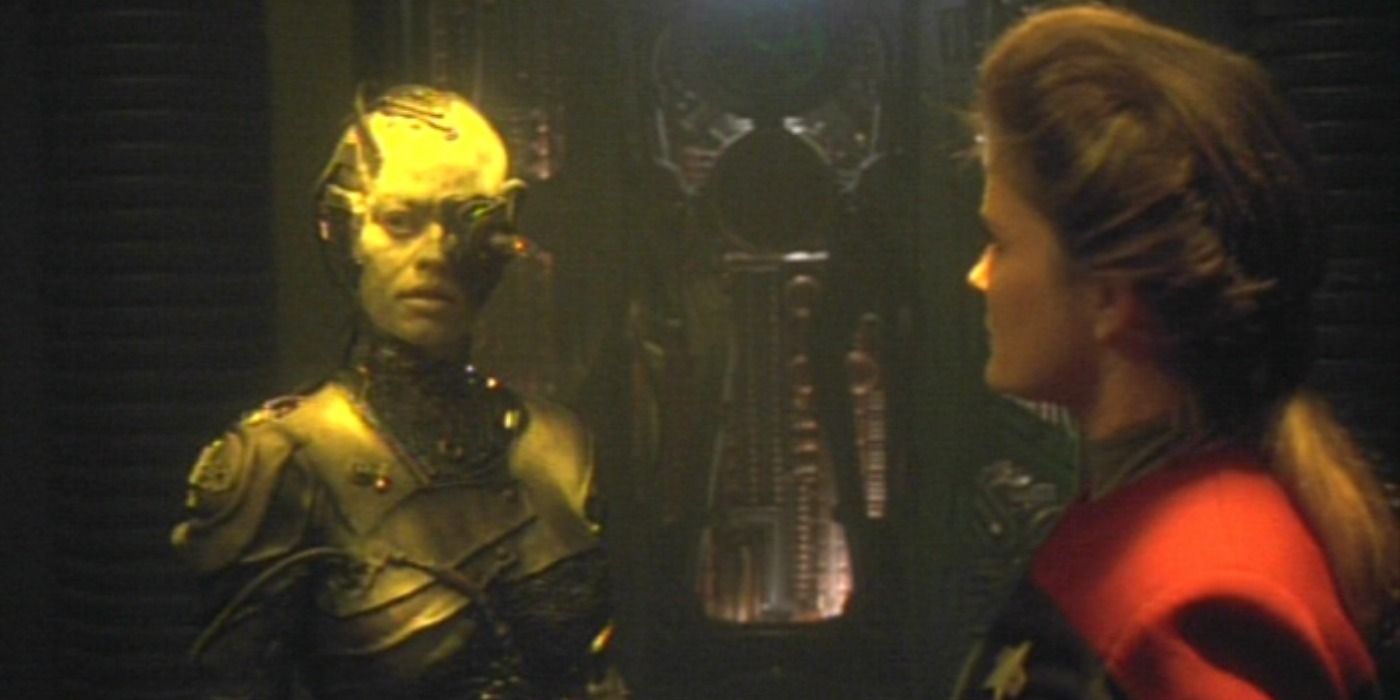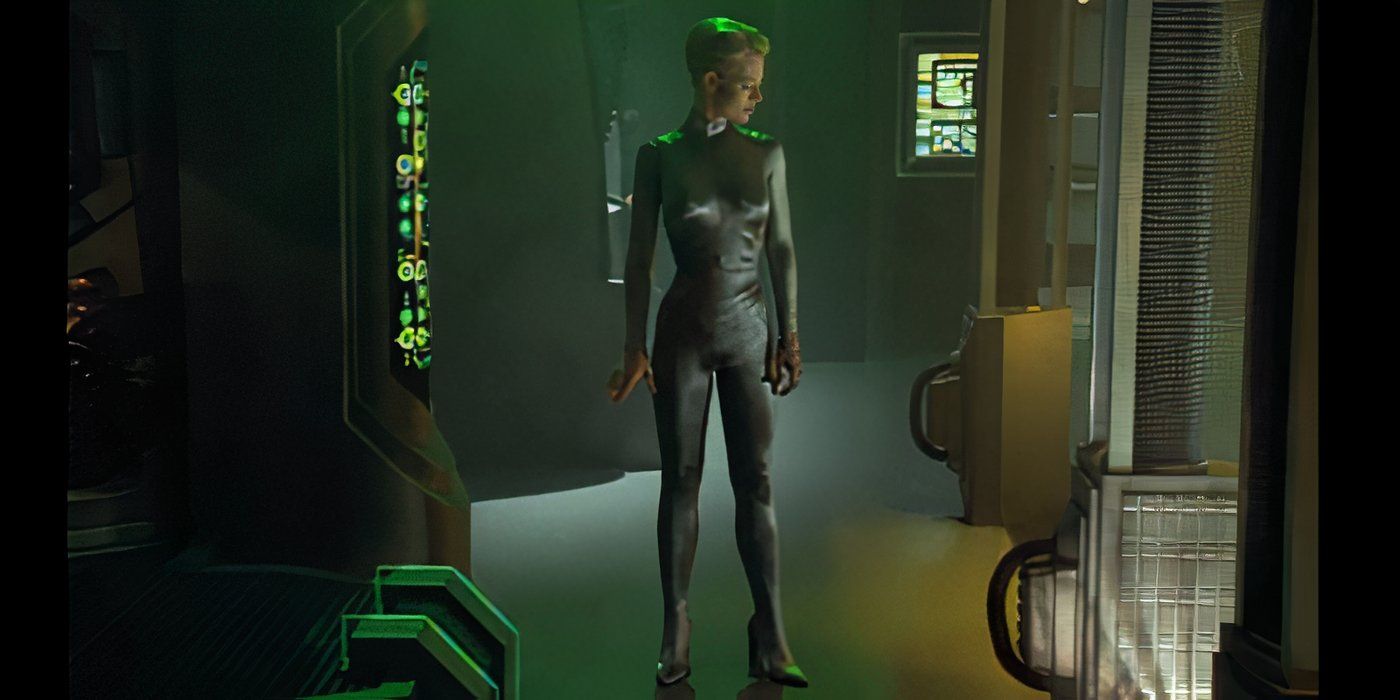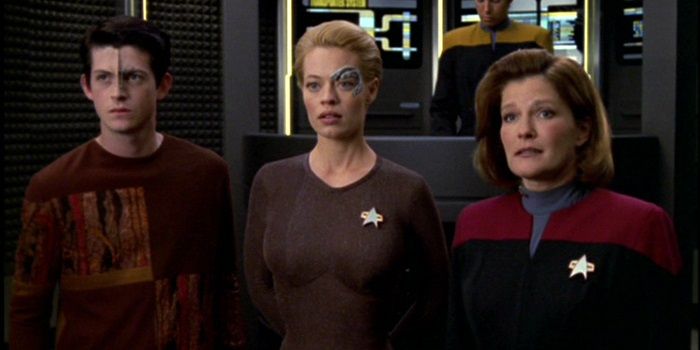After the lackluster response to Star Trek: Picard's first two seasons, Star Trek: Picard season 3 felt like a completely different show. Picard seemed to abandon storylines set up in seasons 1 and 2 in favor of a fun, action-oriented, character-focused Star Trek: The Next Generation cast reunion aboard the USS Titan-A. While I was disappointed by the way that Star Trek: Picard just dropped interesting characters like Romulan Starfleet Cadet Elnor (Evan Evagora) and the actual new Borg Queen, Agnes Jurati (Alison Pill), I definitely didn't mind the new direction that Picard steered Seven of Nine in.
I'm Glad Seven Of Nine Didn't Become Star Trek: Picard's Borg Queen Permanently
Going Back To The Borg Would Have Undermined Seven Of Nine Reclaiming Her Humanity
I'm glad Seven of Nine didn't become Star Trek: Picard's Borg Queen permanently, because joining Starfleet showed Seven's character development from Star Trek: Voyager actually mattered. Even though Seven struggled to fit in, Star Trek: Voyager prepared Seven of Nine for Starfleet. As First Officer of the USS Titan-A, Seven of Nine challenged Captain Liam Shaw's (Todd Stashwick) too-safe calls and xB prejudice. Commander Seven was an outspoken leader, inspiring Starfleet officers to discover their personal power before Picard season 3's final showdown, like Voyager's crew helped Seven. Seven of Nine could never have done that as the Borg Queen.
Captain Seven's Starfleet career made so much sense because Seven of Nine's entire Star Trek story is about being liberated from the Borg. Even if Seven of Nine became Queen of a different kind of Borg Collective, like Agnes Jurati did in Picard season 2, going back to the Borg would have undermined the difficult steps Seven of Nine took to distance herself from the Borg and reclaim her humanity. Fortunately, Seven herself seemed to know this, since she was reluctant to re-join any Borg Collective, even temporarily, before she became the Artifact's Borg Queen in Star Trek: Picard.
Seven Of Nine Becoming A Starfleet Captain Fits Star Trek's Message Perfectly
Seven's Story Is About Empathy & Hope Beating Prejudice & Fear
I always saw Seven of Nine's liberation from the Borg Collective as someone escaping a cult or an abuser.
Because of Captain Janeway's approach to healing, instead of blaming Seven, I always saw Seven of Nine's liberation from the Borg Collective as someone escaping a cult or an abuser. That metaphor keeps working in Picard, when the Battle of Wolf 359 is still in living memory, and Borg drones being de-assimilated is relatively new. Obvious xBs like Seven are regarded with fear and suspicion. But becoming a Starfleet Captain after being a Borg drone means Seven of Nine is thriving as an individual despite what the Borg did to her, or how others see her.
Star Trek: Legacy Can Bring Seven Of Nine's Arc Full Circle
Seven Became Captain After Star Trek: Picard Stopped Being So Hopeless
Star Trek: Discovery's Captain Michael Burnham (Sonequa Martin-Green) also suffered through a bleak beginning as a Federation enemy before becoming an iconic Starfleet Captain.
When Star Trek: Picard began, it was unnecessarily dark compared to the Trek golden age. Starfleet suffered and lacked resources, making them reluctant to explore the galaxy. Seven of Nine didn't just watch her adopted son Icheb (Casey King) gruesomely die; she euthanized him herself. In this edgy, bleak version of Star Trek, becoming the Borg Queen might have actually been the best Seven of Nine could have hoped for, which would have been a disservice to Seven as a survivor—and I'm so glad Star Trek: Picard abandoned that idea to make Seven Captain of the Enterprise instead.
